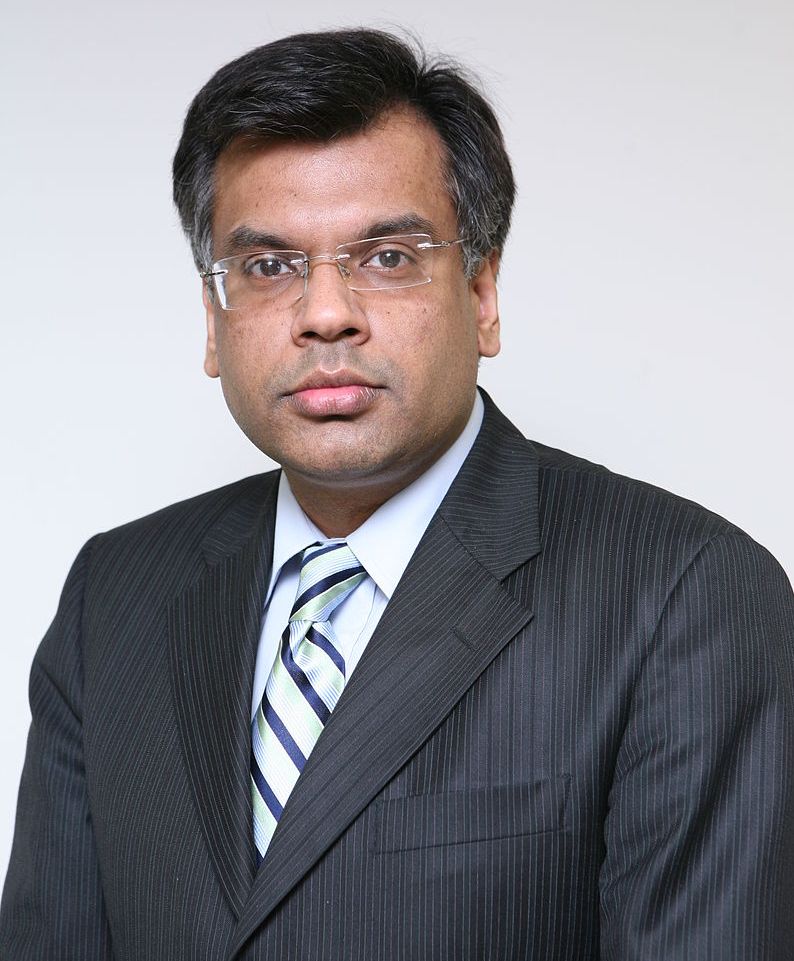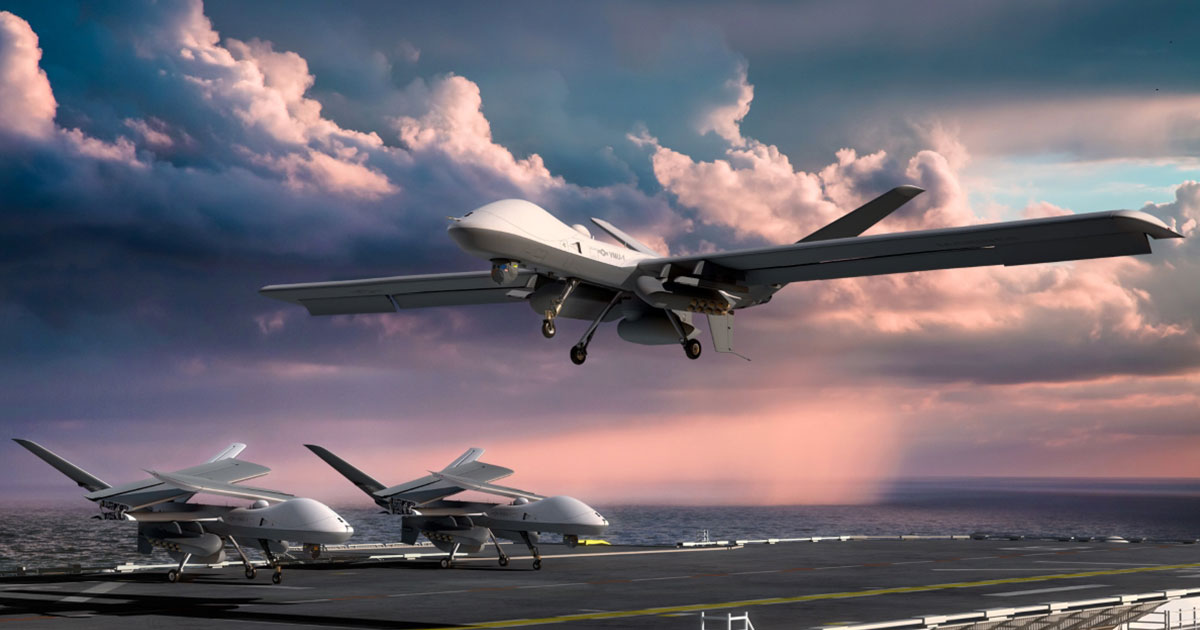Chief Executive of General Atomics Global Corp. Vivek Lall has a résumé that encompasses the top levels in aerospace.
He’s received a gold medal for contributions to aeronautical science from Cambridge University.
He’s been appointed to advisory positions with global impact.
And he’s currently leading an energy and defense manufacturer and R&D giant.

In 2020, Lall (’91) became chief executive of General Atomics Global Corp., where he previously led commercial strategic development. Thanks to key top positions with Raytheon, Lockheed Martin, and Boeing Defense and Space operations, he brings a wealth of insight and experience to the San Diego-based global defense and nuclear company.
Technical credentials and a global industry perspective have raised Lall’s profile as an expert-on-call to the international level. He has advised the United Nations on broadband and cybersecurity issues. The Indo- American Chamber of Commerce tapped him to chair its Indo-US Strategic Dialogue, and he chaired the Defense Committee of the Association of Chambers of Commerce and Industry of India. The Observer Research Foundation, a global think tank in India, appointed him a distinguished fellow. He is also a member of the U.S.- Japan Business Council and the U.S.-India Business Council.
Shaping policy and relationships carry far-reaching responsibilities. “Aerospace is addressed by heads of state and the highest levels of government because of the strategic implications for security and economies,” he says. “Because I have worked in core areas and adjacencies, I can provide a comprehensive picture of how elements fit into a framework of defense or energy. I enjoy putting the mosaic together, whether that means drawing on quantum computing, artificial intelligence or machine learning — finding the connections that may not be obvious.”
A lifelong learner, Lall earned his bachelor’s degree in Mechanical Engineering at Carleton University in Canada, a master’s in Aeronautical Engineering from Embry-Riddle — where he also learned to fly — and an MBA from the City University of Seattle. He earned his doctorate in Aerospace Engineering from Wichita State University in Kansas through a fellowship from NASA Ames Research Center.
Lall has been on both sides of the lectern, serving as an adjunct faculty member at Embry-Riddle at the McConnell Air Force Base in Wichita. He retains a love for aerospace education. “I enjoy academia, and I enjoy the science of aerospace. The more you dig into something, the more you realize how little you know.”
Lall traces his passion for airplanes to his childhood in Vienna, Austria. “As early as 5 or 6, I was fascinated to look up in the sky and see an airplane. At school, I was strong in mathematics and science, which informed my interest going forward.”
As a newly minted mechanical engineer, Lall’s senior project focused on something that fused all his interests: airplane performance. When he saw a TIME magazine article that called Embry-Riddle “the Harvard of the sky,” he said to himself, “This is where I’ve got to go.”
“The environment at Riddle was pivotal to my career and my thought process because I was around faculty and students who were passionate about aviation. That resonated with me.” Finding himself surrounded by planes also prompted him to learn to fly. “I wanted to expand my understanding of design from a pilot’s perspective.”
It is still his priority to ask new questions, master new skills and never stand still. “All of us are trying to stay ahead. Some technologies are evolutionary. Some are revolutionary. Anticipating the next leapfrog technology is a fascinating journey.” He acknowledges the journey is also moving faster than ever. “The cycle times have considerably reduced in terms of increasing new ideas, concepts and technologies.”
One of those engineering revolutions in progress is the development of a short takeoff and landing (STOL)-capable MQ-9B aircraft — a first-of-its-kind upgrade. This has been a company focus since 2017, and General Atomics recently announced MQ-9B STOL is proving its versatility in austere locations and allows for more flexibility when selecting locations for takeoff and landing.
The inevitability of innovation and the possibility of collaboration keep Lall energized as a chief executive. “From a technology space, the R&D to take us beyond the next five or 10 years is compelling. But I also see so much potential for collaborative achievements between governments and businesses across the globe. We can and should tap into a talent pool from around the world.”
Technical talent is only one aspect of moving a company forward, and Lall takes the idea of servant leadership to heart. “A leader works for everyone. You need to be a facilitator and enable your teams. Support them by providing tools and taking away roadblocks — including silos across organizations.”
He believes this management approach creates a happier workplace that is also more productive and competitive. “When you harness the depth and breadth of an organization across all its verticals, that is real power. That creates the engagement that unlocks potential.”
Expanding your assumptions about mentorship is also beneficial, he says. “I’ve had great mentors in the academic world and throughout my career. I still do. Mentors are not necessarily senior people or experts outside your field. A new generation can play a mentoring role, keeping you current and bringing fresh ideas. Students and people just entering the workforce have a lot to offer, if you listen.”
Two of those young people who may play a non-official advisory role as mentors are Lall’s son and daughter, Vikrant and Shreya, who both are college students. “I’ve been involved in many projects I am proud of, but I am most fortunate to have maintained a work-life balance. A happy family life rounds out a leader’s life.”
Looking back on his own student years, Lall has happy memories of his time at Embry-Riddle. “It shaped my career. It gave me self-confidence and helped define my direction and what I wanted to pursue.”
When it comes to breakthroughs in technology and collaboration, Vivek Lall is still in hot pursuit.
